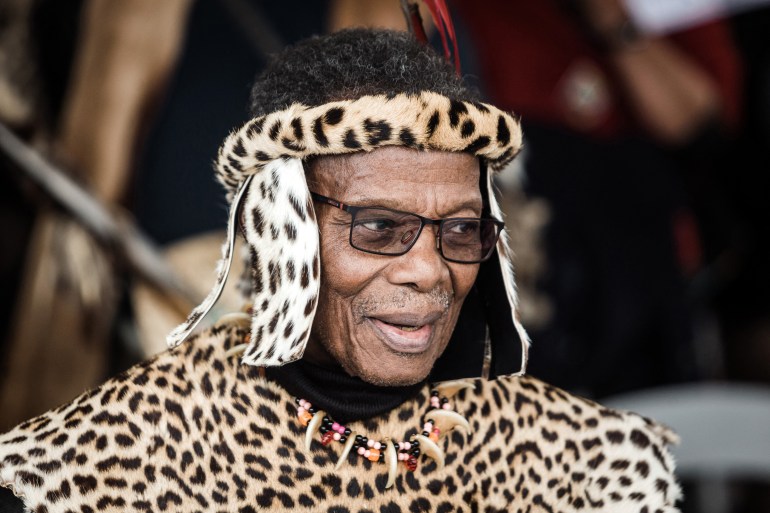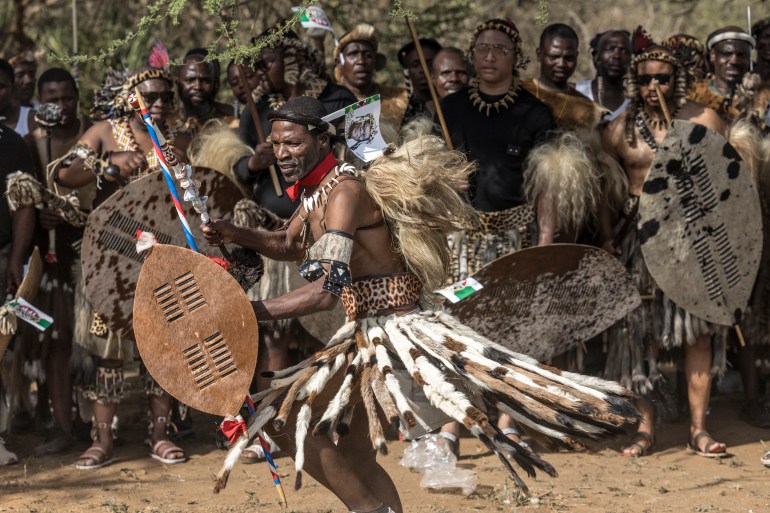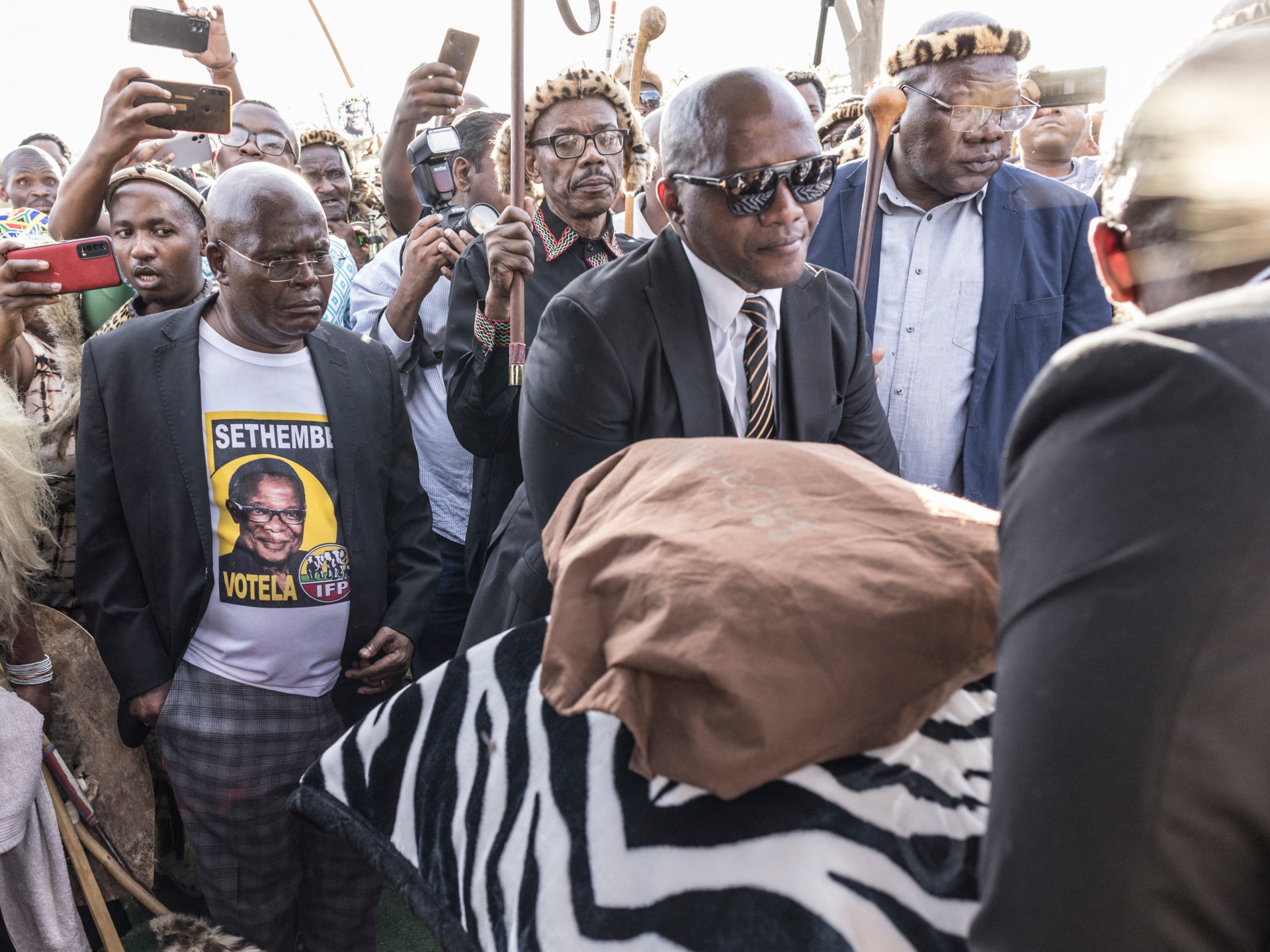Thousands expected to pay tribute to once-feared founder of Inkatha Freedom Party who died a week ago.
Mourners in traditional warrior headbands have gathered for the state funeral of Zulu prince Mangosuthu Buthelezi, a powerful but divisive leader implicated in a wave of deadly violence that marked the birth of modern South Africa.
Thousands are expected to pay tribute to the once-feared founder of the Inkatha Freedom Party (IFP), who died a week ago aged 95.
On Saturday, mourners wearing black or sporting Zulu warrior headbands streamed into a small stadium in Ulundi, the ancient capital of the Zulu kingdom and IFP heartland, for the funeral.
“He treated all of us Zulus as one person. That is why I am here,” said Bonga Makhoba, 31, who drove 150km (93 miles) and slept in his car to attend the ceremony. “I just respect him and I want him to … rest in peace.”
White marquees were set up to accommodate important guests on the pitch, at the centre of which stood a black canopy for the coffin.
President Cyril Ramaphosa, who ordered flags to be flown at half-staff across the country, will deliver a eulogy at the funeral.
“Buthelezi has been an outstanding leader in the political and cultural life of our nation, including the ebbs and flows of our liberation struggle,” Ramaphosa said, announcing the Zulu nationalist’s death last Saturday.
Buthelezi was once a foe of Ramaphosa and his late boss Nelson Mandela, as the pair led negotiations to end white rule in South Africa. For years, he was defined by his bitter rivalry with the ruling African National Congress (ANC).
The party, which has governed since the first post-apartheid elections in 1994, was his political home until he broke away to form the Inkatha movement in 1975.
Born of royal blood, he was to some the embodiment of the Zulu spirit: proud and feisty. To others, he bordered on a strongman.

Contested legacy
As premier of the “independent” homeland of KwaZulu – a political creation of the apartheid government – Buthelezi was often regarded as an ally of the racist regime.
He was dogged by allegations of collaborating with the white government to fuel violence and derail the ANC’s liberation struggle – a claim he furiously denied.
Violence between Inkatha supporters and rival liberation groups killed about 12,000 people as unrest between the ANC and IFP escalated in the run-up to the democratic elections in 1994.
Following an 11th-hour turnabout, he was later appointed home affairs minister in the national unity government led by Mandela.
Slender, with distinct rectangular glasses, and a charismatic speaker, Buthelezi went on to become one of the longest serving politicians.
Seen as a statesman by supporters and protector of the culture of more than 11 million Zulus, his legacy, however, remains contested.

